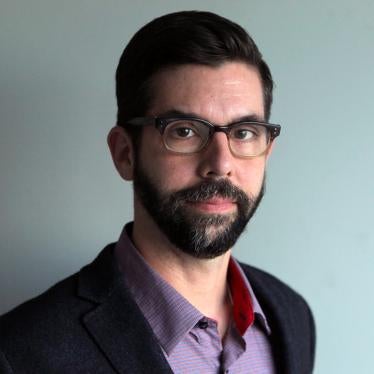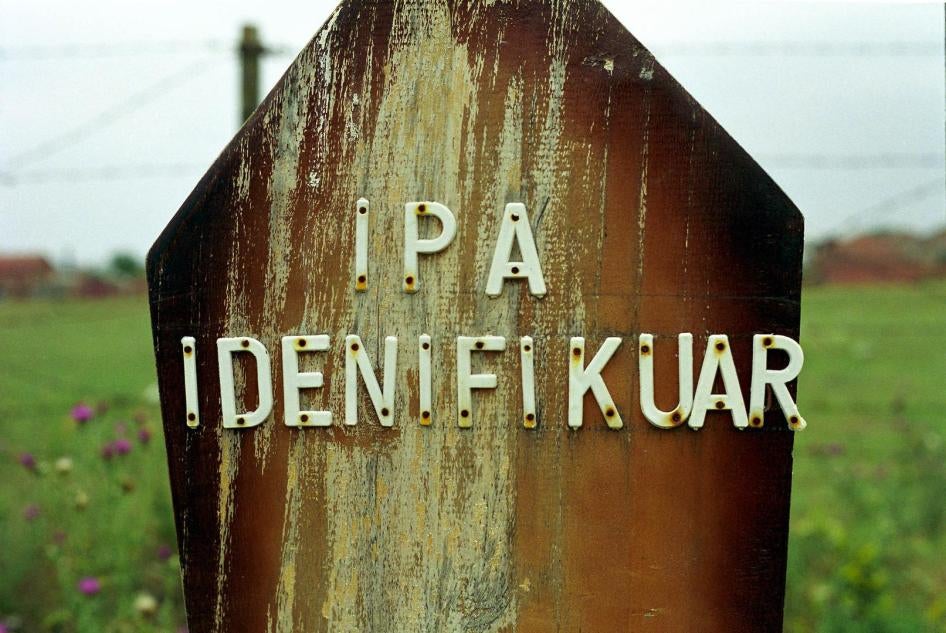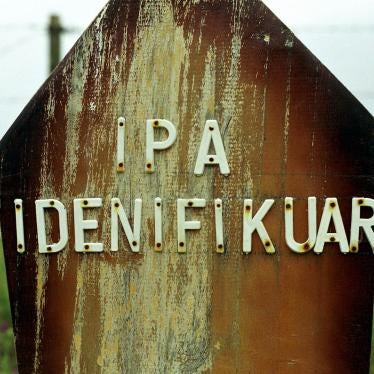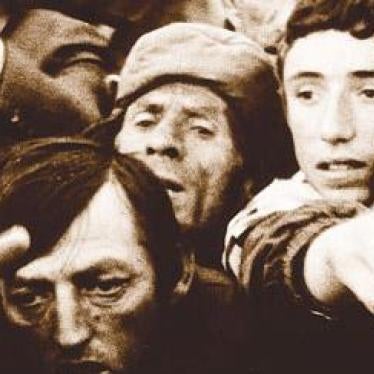This week marks 20 years since the end of the Kosovo war. What began as systematic Serbian state oppression led to attacks by an ethnic Albanian armed group, a vicious government response, and 78 days of NATO airstrikes.
Civilians paid a hefty price. In Kosovo, Serbian and Yugoslav forces rampaged through villages burning homes, executing men, and raping women and girls. Roughly 850,000 Kosovo Albanians were forcibly expelled.
Human Rights Watch’s main report on the conflict found “a coordinated and systematic campaign to terrorize, kill, and expel the ethnic Albanians of Kosovo that was organized by the highest levels of the Serbian and Yugoslav governments.” Serbian authorities tried to hide those crimes by moving hundreds of bodies to Serbia and dumping them in mass graves.
These were not the conflict’s only crimes. The ethnic Albanian insurgency known as the Kosovo Liberation Army (KLA) also abducted and murdered Serbian, Roma, and Albanian civilians during and after the war. NATO forces used cluster munitions and its attacks killed about 500 civilians, some in legally dubious strikes.
Today, 1,653 people remain missing from the war: 1,092 Albanians, and 562 Roma and Serbs.
Justice is mostly missing, too. The International Criminal Tribunal for the Former Yugoslavia (ICTY) indicted Serbian leader Slobodan Milosevic for his role in Kosovo, but he died during trial. Six of his senior co-conspirators were convicted for war crimes and crimes against humanity in Kosovo, three of whom were granted early release after serving two-thirds of their sentences. One of the six, police chief Vlastimir Djordjevic, whom the ICTY found guilty of coordinating the body-removal operation, is eligible for early release this month. 34 NGOs from Serbia and Kosovo have opposed that until he shares information about the location of missing persons.
Other senior security officials credibly implicated in war crimes have eluded justice. A Belgrade-based war crimes court has focused on low- and mid-level perpetrators, and ignored many of the most serious Kosovo crimes, including the removal of bodies. The European Union, which Serbia aspires to join, has not made war-time accountability a top demand.
Meanwhile, senior leaders of the KLA accused of killings and body transfers to Albania remain at-large, some in high government posts. A new court in The Hague offers hope for justice, and Serbia’s protection of war criminals does not justify attempts to undermine that chance.
Some people advocate a turn of the shoulder: let wounds heal with time. The EU has focused on negotiations to normalize Kosovo-Serbia relations. As important as that dialogue is, justice is a critical medicine for lasting health.








